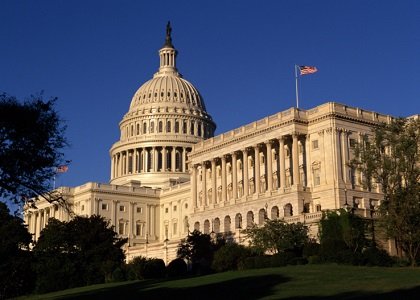In his State of the Union speech to Congress last month, President Obama drew widespread attention for pledging to use his executive authority to advance his priorities. He insisted he intends to act with or without Congress, and listed well over a dozen actions he plans to take by executive order.
Plenty of people were happy about this. The speech was applauded by pundits who have given up on Congress and they believe the only way to move forward is by strengthening the presidency. The present government is paralyzed, they argue. A stronger presidency would get Washington moving again.
Others are alarmed by this approach. The president, they say, is trampling on the constitutional separation of powers, grabbing powers for himself that are meant to be shared with Congress.
The problem with this debate is that it’s missing a key part of the equation. Yes, our system needs a strong presidency but it also needs a strong Congress. We are best off as a nation when the two consult, interact and work together as powerful branches.
Every president in recent memory has expanded the power of his office and been accused of a power grab. They’ve had plenty of motivation to do so. The modern world demands decisive action. Americans tend to support presidents who act forcefully. Congress is complex and hard to work with.
Yet there are limits to this approach, because in the end there is no substitute for legislation. Executive orders lack the permanence and force of law, so they can be hard to implement and can be cancelled by a later president. They don’t benefit from consensus building and consultation with voices independent of the president’s.
Consensus building can’t happen in a vacuum, however. Without a strong Congress able to find its way effectively through the thickets of lawmaking, this president and his successors will surely continue to address the nation’s challenges on their own. The question is, how far down that road can we go before Congress becomes irrelevant, with too much power— and too much potential for the abuse of power— in presidential hands?
The march toward presidential unilateralism dangerously undercuts our constitutional system. Before we give up on the separation of powers, let’s try strengthening Congress. This may not be the easy route, but if we don’t take it, representative democracy itself is in doubt.
Lee Hamilton is Director of the Center on Congress at Indiana University.
